Forum on Funding for International Cooperations Towards Solving Societal Problems
Date: 10:00-12:00, Thursday, 13th July 2023 (ThA)
Room: Main Hall
Organizers:
Keiko Takahashi (Waseda University)
Hideaki Ishii (Tokyo Institute of Technology)
Hajime Asama (The University of Tokyo)
Session Chair:
Keiko Takahashi (Waseda University, Vice General Chair of IFAC WC 2023)
Moderator:
Frank Allgower (Univ. Stuttgart, Former Vice President of DFG)
Panelists:
Hajime Asama (IFAC President)
Yuko Harayama (Professor Emeritus, Tohoku University)
Eva Kanso (Program Manager, Directorate for Engineering, National Science Foundation (NSF))
Saiki Hase (Deutsche Forschungsgemeinschaft (DFG), DFG Tokyo Office)
Masaki Sato (Manager, Department of International Affairs, Japan Science and Technology Agency (JST))
Tom Kuczynski (Science and Technology Advisor Science, Innovation, Digital, and Other EU Policies Section, Delegation of the European Union to Japan)
Pramod Khargonekar (University of California Irvine)
Shuzhi Sam Ge (National University of Singapore)
Hyungbo Shim (Seoul National University)
Abstract
The vision of this World Congress is "Wa (Harmony)". It expresses our goal to solve societal problems and to create social values by building feedback loops, forming communities, and realizing harmony through international cooperation among diverse people from the academia, industry, and government.
In this Forum, we would like to discuss potential directions towards reaching this goal via international collaborations and how such efforts could be supported by funding agencies in different countries.
Session Program
Opening Remarks:
Prof. Hajime Asama, IFAC President (5 min)
Title: Introduction of the Vision of the IFAC WC 2023
Prof. Yuko Harayama, Professor Emeritus, Tohoku University (10 min)
Title: Challenges for Science, Technology and Innovation (STI) policy
Part 1: Talks by Representatives of Funding Agencies (15 min x 4)
- US: Dr. Eva Kanso, Program Manager, Directorate for Engineering, National Science Foundation (NSF)
- Germany: Dr Saiki Hase, Deutsche Forschungsgemeinschaft (DFG), DFG Tokyo Office
- Japan: Mr. Masaki Sato, Manager, Department of International Affairs, Japan Science and Technology Agency (JST)
- European Union: Mr. Tom Kuczynski, Science and Technology Advisor Science, Innovation, Digital, and Other EU Policies Section
Delegation of the European Union to Japan
Topics for the talks
- Introduction of the agencies and funding programs especially those for international collaborative research
- If possible, programs and research projects related to automatic control, AI, smart society, robotics, and so on.
Part 2: Panel Discussion (45 min)
Moderator: Frank Allgower (Univ. Stuttgart, Former Vice President of DFG)
Panelists
- Japan: Yuko Harayama
- Four speakers from Part 1
- US: Prof. Pramod Khargonekar (University of California Irvine)
- Singapore: Prof. Shuzhi Sam Ge (National University of Singapore)
- South Korea: Prof. Hyungbo Shim (Seoul National University)
- Japan: Prof. Keiko Takahashi
First, the three panelists not in Part 1 will give short talks about their research and expectations related to the congress vision (3-5 min x 3 talks). This will be followed by discussion moderated by Profs. Allgower.
Closing Remarks:
Prof. Frank Allgower
Biography of Chair
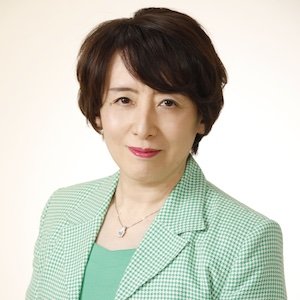 Keiko Takahashi received Ph.D in engineering. from Tokyo Institute of Technology, Tokyo, Japan, in 1991, respectively. She joined Kao Corporation Tokyo as a researcher until 1993. She was an invited research scientist in Computer Laboratory of University of Cambridge UK during 1993-1994 and in Tokyo Institute of Technology during 1994-1998. She worked as a research scientist in National Space Development Agency of Japan during 1998-2002. Since 2002, she had worked as a scientist, as Director-General of Center for Earth Information Science and Technology and as Director of Yokohama Institute in Japan Agency for Marine-Earth Science and Technology (JAMSTEC) until 2021. Since April 2021, she has been a research professor of Waseda University. She had been a member of Science Council of Japan during 2014-2020. Her current research interests are climate/weather prediction and understanding response mechanisms to the global climate change. She promotes her research projects with multi-scale multi-physics simulations with ultra-high-resolution simulation and machine learning.
Keiko Takahashi received Ph.D in engineering. from Tokyo Institute of Technology, Tokyo, Japan, in 1991, respectively. She joined Kao Corporation Tokyo as a researcher until 1993. She was an invited research scientist in Computer Laboratory of University of Cambridge UK during 1993-1994 and in Tokyo Institute of Technology during 1994-1998. She worked as a research scientist in National Space Development Agency of Japan during 1998-2002. Since 2002, she had worked as a scientist, as Director-General of Center for Earth Information Science and Technology and as Director of Yokohama Institute in Japan Agency for Marine-Earth Science and Technology (JAMSTEC) until 2021. Since April 2021, she has been a research professor of Waseda University. She had been a member of Science Council of Japan during 2014-2020. Her current research interests are climate/weather prediction and understanding response mechanisms to the global climate change. She promotes her research projects with multi-scale multi-physics simulations with ultra-high-resolution simulation and machine learning.
Biography of Panelists
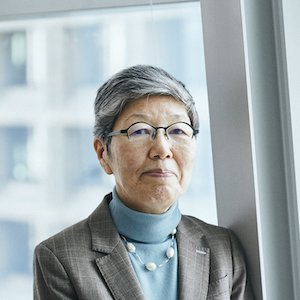 Dr. Harayama is the co-chair of the Board of Directors of the Japanese Association for the Advancement of Science (JAAS), a Japanese non-profit organization established in 2022. Until March 2022, she was RIKEN’s Executive Director for international affairs. Prior to joining RIKEN, she served in the Cabinet Office of Japan as an Executive Member of the Council for Science, Technology and Innovation, and at the OECD as Deputy Director of the Directorate for Science, Technology and Industry. Dr. Harayama was Professor at the Graduate School of Engineering of Tohoku University for 10 years. Her experience prior to Tohoku University includes being a Fellow at the Research Institute of Economy, Trade and Industry (RIETI) in Japan and an Assistant Professor in the Department of Political Economy at the University of Geneva.
Dr. Harayama is the co-chair of the Board of Directors of the Japanese Association for the Advancement of Science (JAAS), a Japanese non-profit organization established in 2022. Until March 2022, she was RIKEN’s Executive Director for international affairs. Prior to joining RIKEN, she served in the Cabinet Office of Japan as an Executive Member of the Council for Science, Technology and Innovation, and at the OECD as Deputy Director of the Directorate for Science, Technology and Industry. Dr. Harayama was Professor at the Graduate School of Engineering of Tohoku University for 10 years. Her experience prior to Tohoku University includes being a Fellow at the Research Institute of Economy, Trade and Industry (RIETI) in Japan and an Assistant Professor in the Department of Political Economy at the University of Geneva.
Dr. Harayama holds a Ph.D. in Education Sciences and a Ph.D. in Economics both from the University of Geneva. She has received Chevalier de la Légion d'honneur in 2011. She is an International Fellow of the Royal Swedish Academy of Engineering Sciences and a Foundation Fellow of the International Science Council.
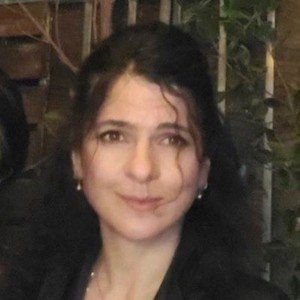 Eva Kanso started her assignment at the National Science Foundation (NSF) in Fall 2021 from the University of Southern California (USC), where she is a professor and the Z.H. Kaprielian Fellow in Aerospace and Mechanical Engineering. Prior to joining USC in 2005, Kanso held a two-year postdoctoral position in Computing and Mathematical Sciences at Caltech. She received a Ph.D. degree in 2003 and an M.S. degree in 1999 in Mechanical Engineering, as well as an M.A. degree in 2002 in Mathematics, all from the University of California at Berkeley. She obtained her Bachelor of Engineering degree from the American University of Beirut with distinction. Kanso held visiting positions at Princeton University, Caltech, the Courant Institute of Mathematical Sciences and the Flatiron Institute of the Simons Foundation in New York City, the Ecole Polytechnique and the Ecole Superieure de Physique et de Chimie Industrielles in Paris, France. Kanso’s research interests concern fundamental problems in the biophysics of cellular and subcellular processes and the physics of animal behavior, both at the individual and collection levels. A central theme in her work is the role of the mechanical environment, specifically the fluid medium and fluid-structure interactions, in shaping and driving biological functions.
Eva Kanso started her assignment at the National Science Foundation (NSF) in Fall 2021 from the University of Southern California (USC), where she is a professor and the Z.H. Kaprielian Fellow in Aerospace and Mechanical Engineering. Prior to joining USC in 2005, Kanso held a two-year postdoctoral position in Computing and Mathematical Sciences at Caltech. She received a Ph.D. degree in 2003 and an M.S. degree in 1999 in Mechanical Engineering, as well as an M.A. degree in 2002 in Mathematics, all from the University of California at Berkeley. She obtained her Bachelor of Engineering degree from the American University of Beirut with distinction. Kanso held visiting positions at Princeton University, Caltech, the Courant Institute of Mathematical Sciences and the Flatiron Institute of the Simons Foundation in New York City, the Ecole Polytechnique and the Ecole Superieure de Physique et de Chimie Industrielles in Paris, France. Kanso’s research interests concern fundamental problems in the biophysics of cellular and subcellular processes and the physics of animal behavior, both at the individual and collection levels. A central theme in her work is the role of the mechanical environment, specifically the fluid medium and fluid-structure interactions, in shaping and driving biological functions.
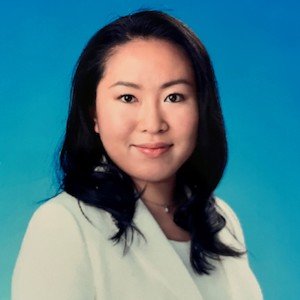 Saiki Hase, Deputy Director, DFG Office Japan, Deutsche Forschungsgemeinschaft (German Research Foundation, DFG). Obtained a PhD in the area of immunopharmacology in the UK. After working as a postdoctoral research fellow in Japan, joined the DFG Office Japan in 2010. Focus on strengthening cooperation with partner organizations and institutions, and organizing symposia. seminars, workshops and lectures to deepen mutual understanding in order to further expand international research collaborations between Germany and Japan. For more information about DFG Office Japan activities, please visit our HP and LinkedIn.
Saiki Hase, Deputy Director, DFG Office Japan, Deutsche Forschungsgemeinschaft (German Research Foundation, DFG). Obtained a PhD in the area of immunopharmacology in the UK. After working as a postdoctoral research fellow in Japan, joined the DFG Office Japan in 2010. Focus on strengthening cooperation with partner organizations and institutions, and organizing symposia. seminars, workshops and lectures to deepen mutual understanding in order to further expand international research collaborations between Germany and Japan. For more information about DFG Office Japan activities, please visit our HP and LinkedIn.
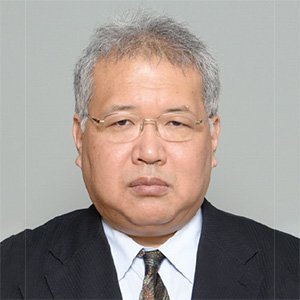 Masaki Sato is Manager, Department of International Affairs since April 2019. During his tenure at Japan Science and Technology Agency (JST) since 2001, he had worked in the Scientific and Technological Information Division. Then, he moved to Moscow, Russia in 2004 to work at International Science and Technology Center (ISTC) as Senior Technology Coordination Manager until the end of 2007. Then he worked at JST Singapore Office as the director from September 2015 to March 2019.
Masaki Sato is Manager, Department of International Affairs since April 2019. During his tenure at Japan Science and Technology Agency (JST) since 2001, he had worked in the Scientific and Technological Information Division. Then, he moved to Moscow, Russia in 2004 to work at International Science and Technology Center (ISTC) as Senior Technology Coordination Manager until the end of 2007. Then he worked at JST Singapore Office as the director from September 2015 to March 2019.
Prior to joining JST, he worked at NEC Telecom System Ltd. where he was mostly in charge of the development of semiconductor chips. His most important achievement at the time is described in the paper “A Jitter and Data Duty Distortion Tolerated PLL Circuit for 156-Mbps Burst-Mode Transmission”, 1998 Symposia on VLSI technology and Circuits, sponsoring by the IEEE Electron Devices Society and the Japan Society of Applied Physics.
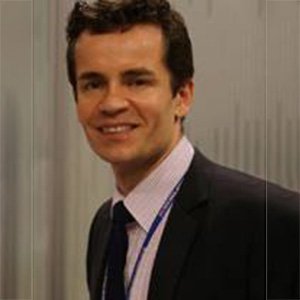 Tom Kuczynski: Born in Poland. Master of Finance and Banking, Cracow University of Economics, Poland completed in 2001. Doctor of Economics (corporate finance), Hiroshima Shudo University, Japan, completed in 2006. From 2006 to 2012 working at the Embassy of the Republic of Poland in Japan (First Secretary), covering Science, Technology and Innovation, Energy and Climate Change issues. Since 2012 working as a science advisor at the Delegation of the EU to Japan, responsible for issues related to the research cooperation between the EU and Japan.
Tom Kuczynski: Born in Poland. Master of Finance and Banking, Cracow University of Economics, Poland completed in 2001. Doctor of Economics (corporate finance), Hiroshima Shudo University, Japan, completed in 2006. From 2006 to 2012 working at the Embassy of the Republic of Poland in Japan (First Secretary), covering Science, Technology and Innovation, Energy and Climate Change issues. Since 2012 working as a science advisor at the Delegation of the EU to Japan, responsible for issues related to the research cooperation between the EU and Japan.
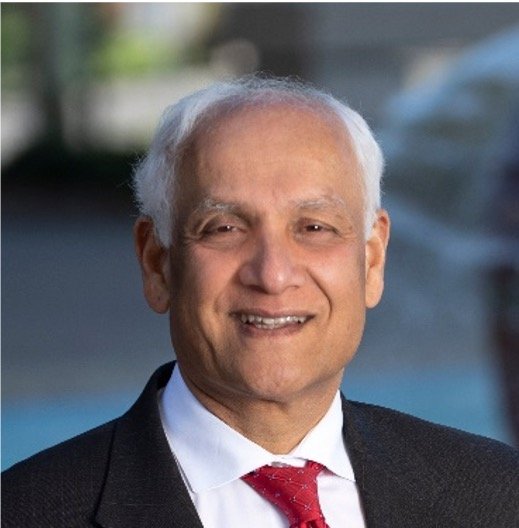 Dr. Pramod Khargonekar was Chairman of the Electrical Engineering and Computer Science Department at the University of Michigan from 1997 to 2001 and held the position of Claude Shannon Professor of Engineering Science. From 2001 to 2009, he was Dean of the College of Engineering at the University of Florida and, until 2016, Eckis Professor of Electrical and Computer Engineering. After serving as Deputy Director of Technology of ARPA-E in 2012-13, he led the Engineering Directorate at the National Science Foundation until June 2016. Currently, he is Vice Chancellor for Research and Distinguished Professor of Electrical Engineering and Computer Science at the University of California, Irvine. He has received numerous honors including the IEEE Control Systems Award, IEEE Baker Prize, IEEE Control Systems Society Bode Lecture Prize, IEEE CSS Axelby Award, NSF Presidential Young Investigator Award, and the AACC Eckman Award. He is a Fellow of IEEE, IFAC, and AAAS.
Dr. Pramod Khargonekar was Chairman of the Electrical Engineering and Computer Science Department at the University of Michigan from 1997 to 2001 and held the position of Claude Shannon Professor of Engineering Science. From 2001 to 2009, he was Dean of the College of Engineering at the University of Florida and, until 2016, Eckis Professor of Electrical and Computer Engineering. After serving as Deputy Director of Technology of ARPA-E in 2012-13, he led the Engineering Directorate at the National Science Foundation until June 2016. Currently, he is Vice Chancellor for Research and Distinguished Professor of Electrical Engineering and Computer Science at the University of California, Irvine. He has received numerous honors including the IEEE Control Systems Award, IEEE Baker Prize, IEEE Control Systems Society Bode Lecture Prize, IEEE CSS Axelby Award, NSF Presidential Young Investigator Award, and the AACC Eckman Award. He is a Fellow of IEEE, IFAC, and AAAS.
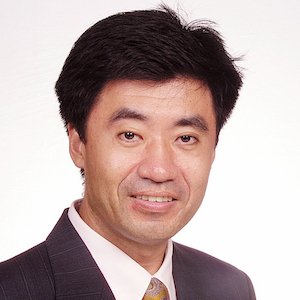 Shuzhi Sam Ge is a Professor with the Department of Electrical and Computer Engineering, National University of Singapore. He received the Ph.D. degree from Imperial College London, London, U.K., in 1993, and the B.Sc. degree from the Beijing University of Aeronautics and Astronautics, China, in 1986. He serves as the Founding Editor-in-Chief, International Journal of Social Robotics, Springer Nature, 2008-present, President Elec of Asian Control Association, 2022-2024. He has served/been serving as an Associate Editor for a number of flagship journals including Automatica, IEEE TAC, IEEE Transaction on SMC-Systems, CAAI Transactions on Intelligence Technology. At IEEE Control Systems Society, he served as Vice President for Technical Activities, 2009-2010, Vice President of Membership Activities, 2011-2012. He is Clarivate Analytics (former Thomson Reuters) high-cited scientist in 2016-2022. He is also a Fellow of IFAC, IET, and SAEng. His current research interests include robotics, intelligent systems, artificial intelligence, and smart materials.
Shuzhi Sam Ge is a Professor with the Department of Electrical and Computer Engineering, National University of Singapore. He received the Ph.D. degree from Imperial College London, London, U.K., in 1993, and the B.Sc. degree from the Beijing University of Aeronautics and Astronautics, China, in 1986. He serves as the Founding Editor-in-Chief, International Journal of Social Robotics, Springer Nature, 2008-present, President Elec of Asian Control Association, 2022-2024. He has served/been serving as an Associate Editor for a number of flagship journals including Automatica, IEEE TAC, IEEE Transaction on SMC-Systems, CAAI Transactions on Intelligence Technology. At IEEE Control Systems Society, he served as Vice President for Technical Activities, 2009-2010, Vice President of Membership Activities, 2011-2012. He is Clarivate Analytics (former Thomson Reuters) high-cited scientist in 2016-2022. He is also a Fellow of IFAC, IET, and SAEng. His current research interests include robotics, intelligent systems, artificial intelligence, and smart materials.
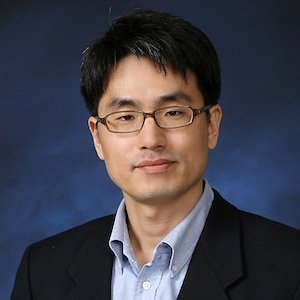 Hyungbo Shim received the B.S., M.S., and Ph.D. degrees from Seoul National University, Korea, and held the post-doc position at University of California, Santa Barbara till 2001. He joined Hanyang University, Seoul, in 2002. Since 2003, he has been with Seoul National University, Korea. He served as associate editor for Automatica, IEEE Trans. on Automatic Control, Int. Journal of Robust and Nonlinear Control, and European Journal of Control, and as editor for Int. Journal of Control, Automation, and Systems. He serves for the IFAC World Congress 2026 as the general chair. His research interests include stability analysis of nonlinear systems, observer design, disturbance observer technique, secure control systems, and synchronization for multi-agent systems.
Hyungbo Shim received the B.S., M.S., and Ph.D. degrees from Seoul National University, Korea, and held the post-doc position at University of California, Santa Barbara till 2001. He joined Hanyang University, Seoul, in 2002. Since 2003, he has been with Seoul National University, Korea. He served as associate editor for Automatica, IEEE Trans. on Automatic Control, Int. Journal of Robust and Nonlinear Control, and European Journal of Control, and as editor for Int. Journal of Control, Automation, and Systems. He serves for the IFAC World Congress 2026 as the general chair. His research interests include stability analysis of nonlinear systems, observer design, disturbance observer technique, secure control systems, and synchronization for multi-agent systems.

